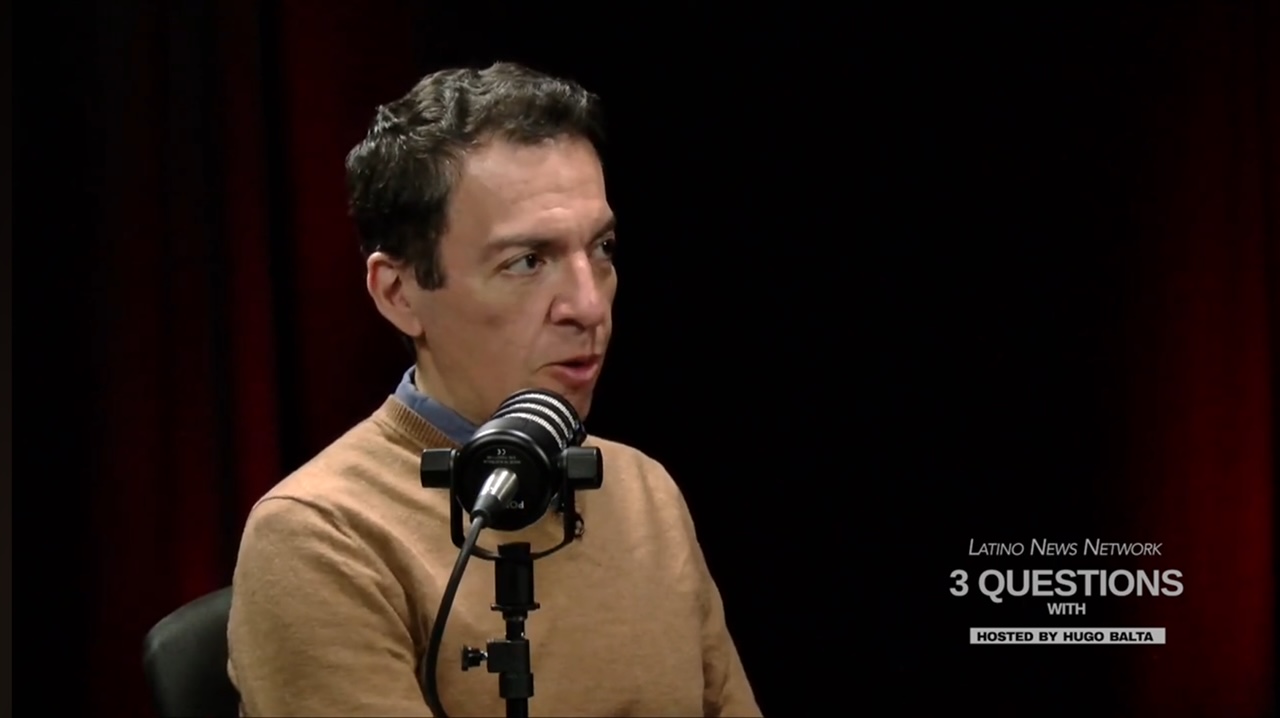Labor activism has intensified as the cost of living rises and income inequality between workers and top executives widens.
The disparities became more apparent during the pandemic, with U.S. corporations seeing record profits. The Bureau of Labor Statistics reported a growth of nearly 300-thousand union members in both the public and private sectors.
Grassroots Collaborative builds power with working families through strategic community-labor organizing, grassroots leadership development, civic engagement, and training. The organization works to create transformative change to win fully funded resources for public schools, social services, and affordable housing that working families depend on.
Carlos Fernandez, the Executive Director of Grassroots Collaborative, was a guest on the program “3 Questions With…” hosted by Hugo Balta, publisher of IL Latino News.
“The vision of Grassroots Collaborative is to challenge corporate power and inequality with Black and Brown communities, working communities in Chicago, to make government more democratic and to make our communities thriving and sustainable,” said Fernandez.
Fernandez also talked about the on again, off again, Bring Chicago Home referendum. “In Chicago right now, whether a property is worth $300,000 or $3 million or $30 million, they pay the same percentage (taxes) across the board. One way to create funding was to make slight changes so that the properties that were worth more, the buyers would have to pay a little bit more, and that extra would go to fight homelessness,” he said about the proposal that is on the ballot in the upcoming primary elections on March 19.
Among the unhoused that the Bring Chicago Home proposal looks to assist are people living in doubled-up situations. “The common picture that people have of homelessness is of people living on the streets, but for Latino families, that is not the experience. An estimate by the Coalition for the Homeless is that 68,000 people in 2021 experienced homelessness. 44,000 of those 68 (thousand) experienced it by having to double-up couch surf, sleep in an extra room in overcrowded situations with family or friends because they were in an unstable housing situation, ” Fernandez said. “And for Latinos, it’s 91% of people that have experienced homelessness (18-19,000 people as doubling-up) in that study.” Fernandez also said that 20,000 students in the Chicago public schools have experienced homelessness and are in unstable housing situations. “Our popular picture of what homelessness is (has to change).”
Fernandez was born in Pilsen, on the southwest side, to parents from Durango and Michoacán, Mexico, who met in Chicago. “They worked factory jobs and service jobs until they started a business,” Fernandez said about his parents. I learned two important values. One was service. My parents worked very hard, and they helped people out, finding jobs and housing. And the other thing was advocacy. I saw my parents speak up for students and neighbors who were being discriminated.”
Fernandez’s work to build worker power, immigrants’ voices, global justice, and community-labor alliances has been partly motivated and guided by witnessing and studying neoliberalism’s reshaping of local, national, and international forces.
Publisher’s Notes: The Latino Policy Forum and Illinois Latino News (ILLN) are partners in a two-year long public awareness campaign illuminating the most common form of homelessness experienced in the Latinx community, which is through ‘doubling-up’ or when a person temporarily lives with others.
The Latino Policy Forum supports the Bring Chicago Home campaign.
Illinois Latino News and Latino Policy Forum, thanks the generous support of Chicago Funders to End Homelessness (CFTEH) in providing the funding to make the special coverage possible.
“3 Questions With…” is co-produced by the Latino News Network (LNN) and CAN TV, Chicago’s hub for community-centric news, hyperlocal stories, and educational resources.
You can support stories like this one by donating to IL Latino News, HERE.
